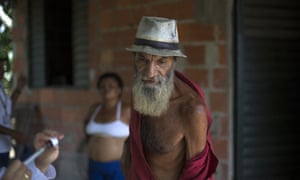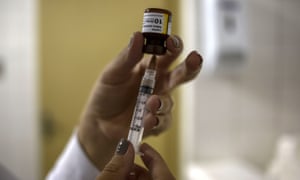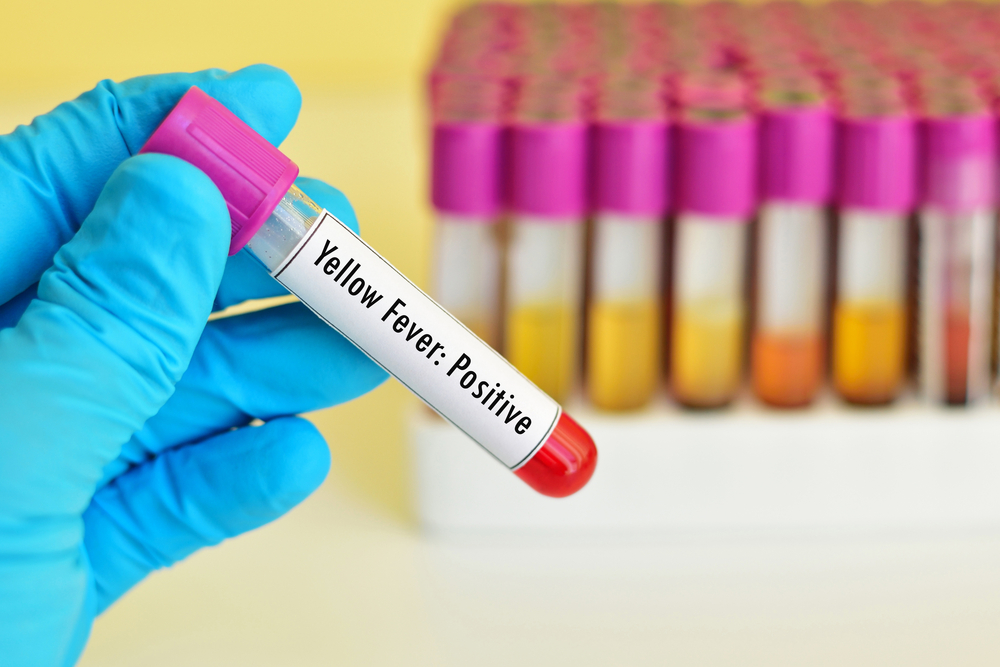Brazil faces new yellow fever outbreak – and questions over lack of preparedness
The country plans to vaccinate its entire population against the lethal mosquito-borne disease but specialists doubt its capacity to do so
As it struggles to control its second deadly yellow fever outbreak in consecutive years, Brazil’s government has said it will vaccinate everyone in this continent-sized country who is not already protected – which means giving injections to 77 million people by the end of 2019.
But although Brazil already recommends yellow fever vaccines in many areas of 23 of its 27 states, it has not been able to deliver on those recommendations, leaving many unprotected.
That has raised concerns from health specialists over whether Brazil can produce all the vaccine it needs in time – even though it is one of only four producers supplying the vaccine to the World Health Organisation.
And it has provoked fresh questions over why the country failed to stop the disease spreading after last year’s outbreak.
Alberto Chebabo, an infectious diseases specialist at the Hospital Universitário Clementino Fraga Filho, part of Rio’s Federal University, said the authorities failed to follow through after initially mobilising to control the 2017 outbreak.
“We did not see the need at that moment to vaccinate the whole population in a rush,” he said.
Another issue is that responsibility for vaccinations is shared across a complex array of federal, state and local governments who don’t always communicate well, said Alba Ropero, regional adviser for immunisation for the Pan-American Health Organisation and WHO in Washington, and many ordinary Brazilians, mostly men, were reluctant to be vaccinated.
“There was a co-responsibility on different levels,” she said.
Transmitted by mosquitoes, yellow fever can be fatal in 15-50% of cases. In the early 20th century, Brazilian cities were blighted by the disease but by 1942, Brazil had seen its last case of urban yellow fever.
Cyclical outbreaks of “sylvatic” yellow fever – in which mosquitoes transmit the virus to humans from infected forest monkeys – caused a few dozen cases every year.
Then, in January 2017, yellow fever began spreading from the forests of Minas Gerais, a sprawling rural state, towards Brazil’s populous south-east, leaving hundreds of dead monkeys in its wake.
Minas Gerais declared an emergency. Brazil organised vaccination campaigns and public information adverts, and queues formed outside health centres in big cities like Rio de Janeiro, where some ran out of vaccines.
But fears that the disease could spread from forest mosquitoes to the Aedes aegypti mosquitoes that thrive in big cities were not realised. And as cases fell in the winter, last September the health minister, Ricardo Barros, said the outbreak was over.
In January yellow fever returned – and this time it was more deadly. From July 2017 to 20 March 2018, there have been 1,098 cases and 340 deaths. And Barros has come under fire.
“It was very predictable,” said Maurício Nogueira, president of the Brazilian Virology Society and an infectious diseases specialist.
Specialists pointed to failures at all level of government. Vaccinations for yellow fever have been recommended in Minas Gerais for over a decade. Yet only half the population of 21 million was protected when the outbreak began there in January 2017 – even less in some of the isolated rural towns where it was concentrated.
Last year, the state saw 475 cases and 162 deaths. It has now vaccinated nearly 9 million people, said Rodrigo Said, state under-secretary of epidemiological vigilance, stressing the difficulties of reaching dispersed, rural populations. “It is a very difficult, onerous job,” he said.
Yet since December the state has seen another 396 cases and 137 deaths. “The numbers speak for themselves,” said Jessé Alves, an infectious diseases specialist at the Emilio Ribas hospital in São Paulo.
As the virus edged closer to Rio de Janeiro last March, authorities said they would vaccinate 90% of the state’s 16 million people by year end. It vaccinated less than a third of them. In 2016 Rio saw 27 cases and nine deaths, this year it has already had 179 cases and 67 deaths.
Last August São Paulo state began vaccinating “ecological corridors”, anticipating the virus’s spread. Adopting the WHO guidelines for controlling outbreaks, the state also split up, or “fractioned”, doses to provide cover for at least a year, instead of a decade.
“We did not take our foot off the accelerator,” said Regiane de Paula, director of the state’s epidemiological vigilance centre. Half the population is now protected, she said.
But since 2017 the state has seen 345 cases and 125 deaths. And whatever measures the authorities took, Nogueira said, “it was clearly not sufficient”.





![[NATL] Top News Photos of the Week](https://media.nbcwashington.com/images/620*349/AP_18067499609214.jpg)